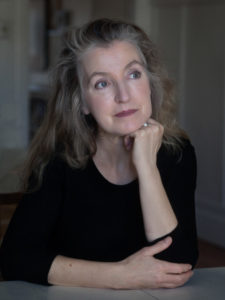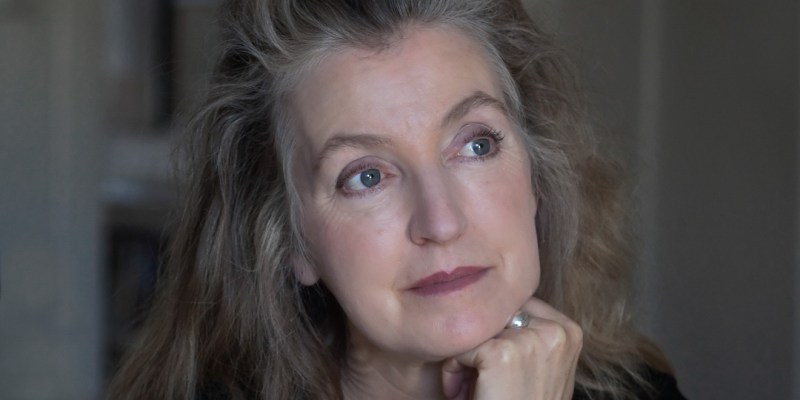Rebecca Solnit is an activist and the author of 20 books on topics ranging from the environment to politics to feminism. This quarter, she is serving as the Stein Visiting Writer with the Creative Writing department and is teaching English 191V: “Reading for Creative Non-Fiction Writers.” The Daily sat down with Solnit to discuss her career, her passions and activism through writing.

The Stanford Daily (TSD): Did you always know you wanted to be a writer?
Rebecca Solnit (RS): Only after I learned how to read. I was enamored with stories. I told stories and sort of drank them up. I was really excited by storytelling, but books suddenly opened up to me. My mom says I learned to read in the first week of first grade and then I fell in love with libraries and wanted to be a librarian because they are with books all day … And then I decided I wanted to be a writer because that was even a better relationship to books than being a librarian. Then, all I had to do was learn to write – which took a long time. I’m not done yet. I’ve made my life kind of simple. I used to think that having a demanding vocation was hard, but I think it’s much harder not being sure what you’re going to do, or what you want to do. So in a way it’s made my life easy in that I knew what to do. I didn’t know how to get there or if I’d get there, but I knew where I wanted to go, and that’s really helpful.
TSD: How do you choose your book subjects?
RS: It always feels like they choose me. It has to be something you’re passionate about, because you’re going to spend a few years with it, and it also feels like there’s a gap there … In ‘97, when I decided to do a book about walking, there was a lot to think about and say that I didn’t feel like anyone had gone into, and it [has to be] a combination between what feels like a service to the larger world and what’s exciting to me personally as a literary challenge or a subject that I want to explore, or a kind of writing that I want to do.
TSD: What have you found to be the best avenues to tie your writing to activism?
RS: I was actually at Stanford once with Julia Butterfly Hill, the young woman … who sat in a redwood tree for several months to prevent it from being cut down, and she had a wonderful way about talking about how everything is political. We all recognize that being vegan is a political choice, but eating at McDonald’s is a political choice … Writing about things that are specifically political, it’s always complicated because I can be an advocate, but you have to have an independence, because if you just toe the party line, propaganda doesn’t always make good writing.
TSD: How do you do this in your writing?
RS: You have to be able to see the flaws and weaknesses on your side, and maybe imagine why other people think otherwise and have a sense of humor about it. I always think of humor as perspective, as the ability to see the gap between how things are supposed to be and how they actually are, and there’s a kind of true believer ideologue, whether it’s a right-wing fundamentalist or a die-hard left-wing ideologue. They tend to be humorless, and they tend to think that this is the right way, or this should work, and all of the heretics should be burned tomorrow. So it’s complex … It feels like part of being a good citizen, to care [about] and represent these things, but without ever giving up being a good writer, which means never reducing the complexity for the sake of a party line. God knows it’s not my job to know if it’s persuasive or not. I do it; if other people are persuaded or encouraged, then that’s fantastic.
TSD: How did you decide to teach at Stanford this quarter as the Stein Visiting Writer?
RS: They made me an offer that I couldn’t refuse. It’s such an interesting place right now. We’re talking about Silicon Valley in the class [English 191V], looking at, among other things, what is writing in the age of blogs and listicles and comment sections and Amazon reviews as a minor art form… [There’s] a move into this amorphous, slushy information ocean that we all contribute to in some way. So [Stanford] felt like such an interesting place to think about this kind of writing and … as everything changes around us, what its role is.
TSD: How do you see journalism developing in the age of technology?
RS: It’s a really interesting moment. There are a lot of great journalists at work and many of them at alternative places like ProPublica … and smaller newspapers, magazines [and] online places like Dahlia Lithwick reporting on the Supreme Court for Slate. So I don’t feel like we’re in a crisis of journalism. We’re in a crisis of whether people are reading it and whether people are reading highly biased and distorted and altogether fake news, because now it’s like toxic waste is being served out of the ice cream bar, or the taco truck, or whatever you want to call where we get our news. I think there’s a problem with people being ready to engage … But journalism as a whole, there’s a lot that’s rotten; there’s a lot that’s healthy. It’s interesting seeing these new forms arise. It all feels so new. I don’t know what it will settle into, or what’s the funding basis.
TSD: What was your interpretation of the media’s coverage of the election?
RS: The mainstream media has a complacency and arrogance that’s always hard. It’s been interesting seeing some of the major outlets feel like they’re starting to accommodate to Trump, and they’re normalizing more than I think a lot of citizens are … I felt like one of the crises with the election was that so many people wanted stories that were simpler than reality. They could tell stories where somebody was all good and somebody else was all bad, where elections are like losing your virginity and it should be a beautiful experience. There’s a consumer language around the election of, “Here’s what I deserve. They need to target market me. This doesn’t appeal to me,” rather than, “What do I owe to my country and the world?”
TSD: As the political climate but also the actual climate is changing so much, do you have advice for students as writers, activists or just human beings?
RS: I write a lot about feminism, which is often so easy. It’s something that has outraged me or annoyed me or amused me, and it’s so personal. It’s about our bodies and our gender identities, and who doesn’t get volatile about that? Climate is such a hard thing to write about because it’s science and technology and global scale changes and energy policies. I write about it, and it’s not necessarily easy to get people engaged, but I think it’s the most important thing in the world. If you understand it, if you care passionately about it, you understand that … things like food and habitable places and diversity of species and oceans that aren’t dead all have everything to do with the climate. I take a deep interest in it.
It’s been interesting seeing, since the election of Trump, states like California revert to where we were under Bush, formulating independent energy policies and climate responses, and the way that the rest of the world has not fallen apart without us. There’s a funny way where the U.S. is always like, “you’re nothing without me, Earth,” and Earth has kind of been like, “we’re okay.” China has taken some leadership. No other countries that I know of have dropped out of the Paris Climate Treaty because of Trump. Of course, it’s made the U.S. kind of an international pariah, [a] laughingstock to have this obscene refusal to acknowledge almost universally acknowledged truths come to power. It raises the stakes for us all to keep working on these things. It’s interesting to see the things that are inevitable – like as renewables become cheaper than fossil fuel-generated power … But it needs to happen fast and clean to go for the minimum rather than the maximum amount of temperature rise and resulting instability.
Contact Sophie Stuber at sstuber8 ‘at’ stanford.edu.
